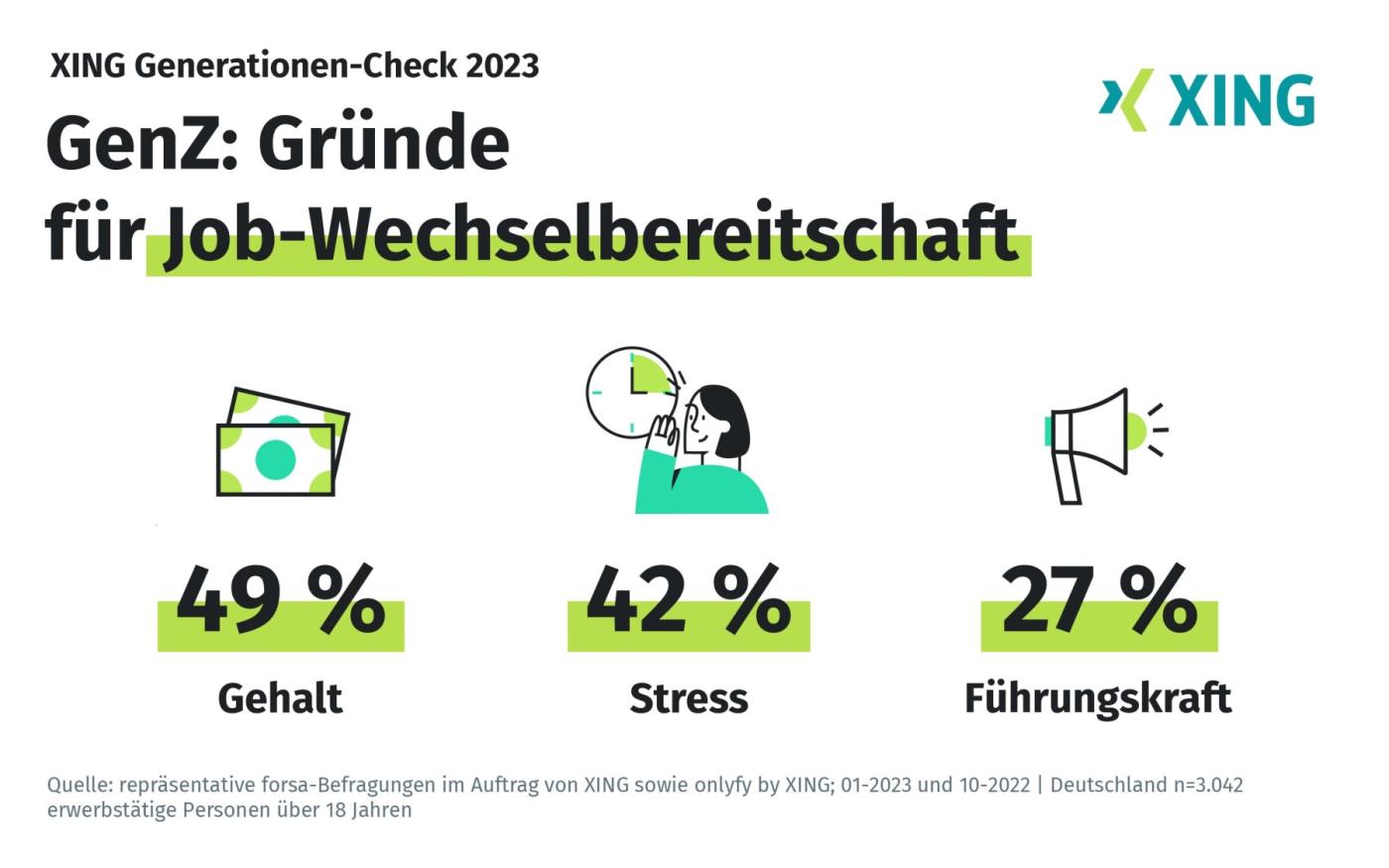The willingness of the GenZ to change jobs is similar to that of the millennials 49 per cent of whom are ready for something new. However, Gen Z includes the most active jobseekers (14 per cent) or over twice the generation average. While 9 per cent of millennials are looking for new challenges, only 3 per cent of the 50+ generation are seeking new positions. "Gen Z priortises flexibly and agility. This generation is unwilling to stay with the same employer for a long time," said Dr Julian Stahl, Xing's labour market expert. Gen Z is highly qualified, dynamic and willing to change. Stahl urged companies to focus more on "employee retention and strategic recruiting".
Gen Z or the 18 to 29-year-old age group are the most active jobseekers (14 per cent) with almost half generally open to a job change (48 per cent), the Xing career network found after evaluating two surveys conducted by FORSA. Although Gen Z accounts for only a small share of Germany‘s workforce, the age group and millennials or those born between 1981 and 1995, could become one of the most important on the labour market, according to the survey published Thursday (April 13, 2023).
Highly qualified and willing to change
Reasons for changing jobs and new employers
Around 45 per cent of interviewees in Generation Z cited low salaries as the main reason for changing jobs followed by too much stress (42 per cent) and dissatisfaction with management culture (27 per cent), Xing found. That begs the question of what companies can do to win over this age group. Around 74 per cent of Gen Z would welcome flexible working hours, a higher salary (72 per cent), and a more cohesive team (68 per cent). Only 18 per cent called for more sustainability.

Satisfying Gen Z
Potential employers could win over 18 to 29-year-olds with additional benefits. Around 82 per cent of Gen Z would like a four-day week, the option of remote working (66 per cent), a sabbatical (31 per cent) or workation (23 per cent). Despite various crises, Gen Z expressed more optimism about finding a job in future. Around 65 per cent of 18-25 year-olds are not anxious about career advancement. Moreover, around 35 per cent are more satisfied with their job situation than before the pandemic. "Companies should try to boost long-term satisfaction and heed young employees' needs and create a suitable corporate culture," said Stahl.
nj/pb
Sources and further information
More
Similar articles

Willingness to change jobs remains high, Onlyfy by Xing survey finds

Employees confident despite crises, Xing survey on happiness finds

Lack of time and money main causes of failed further education, Xing
